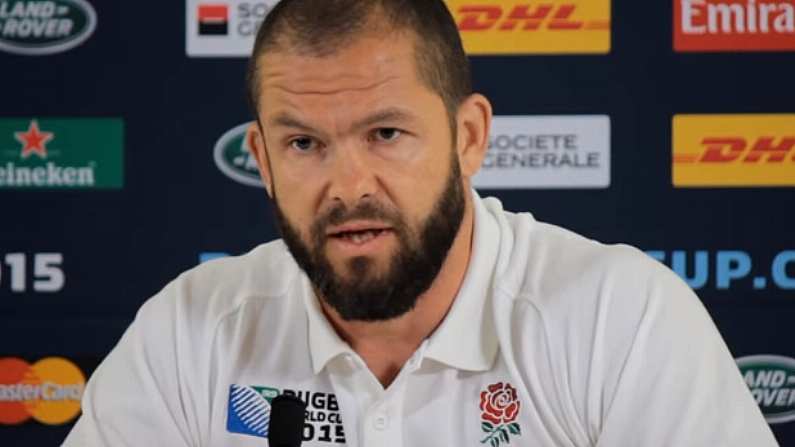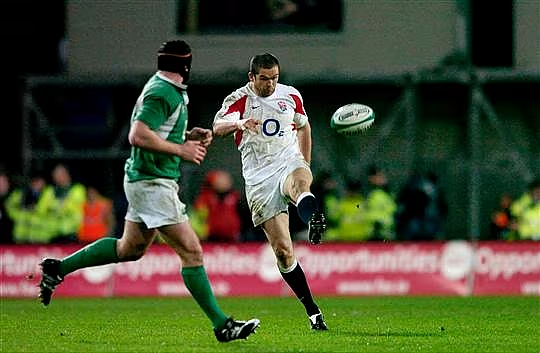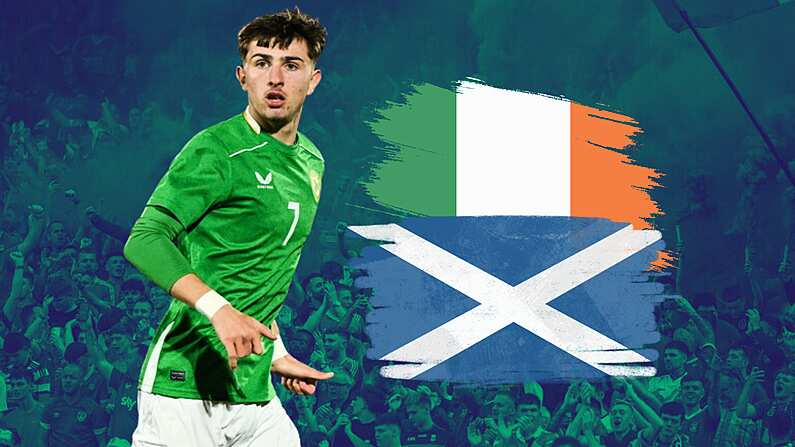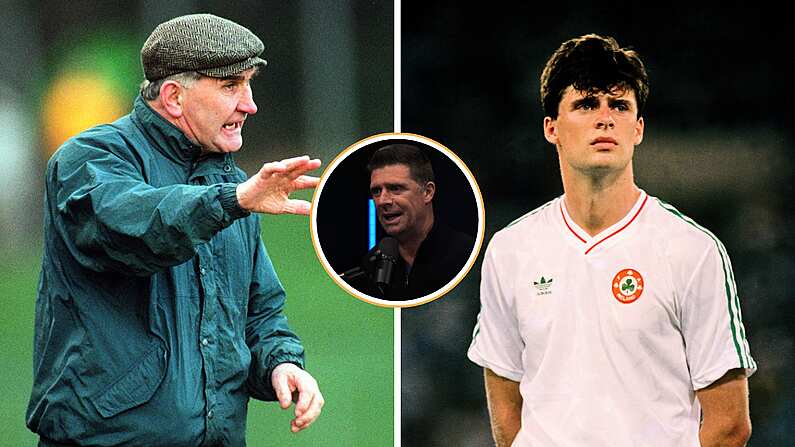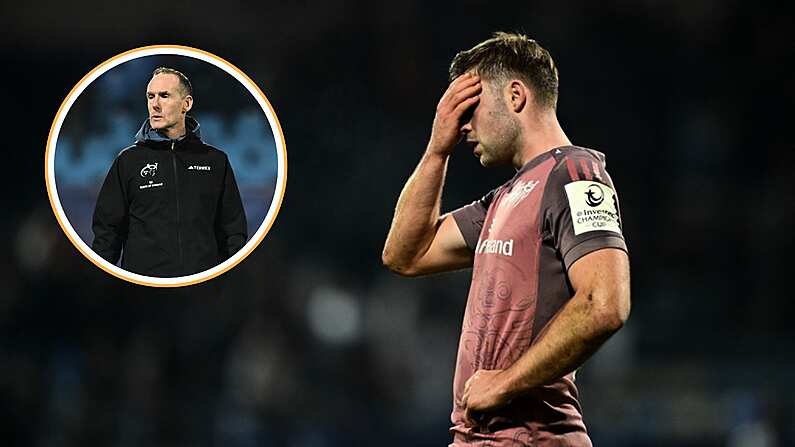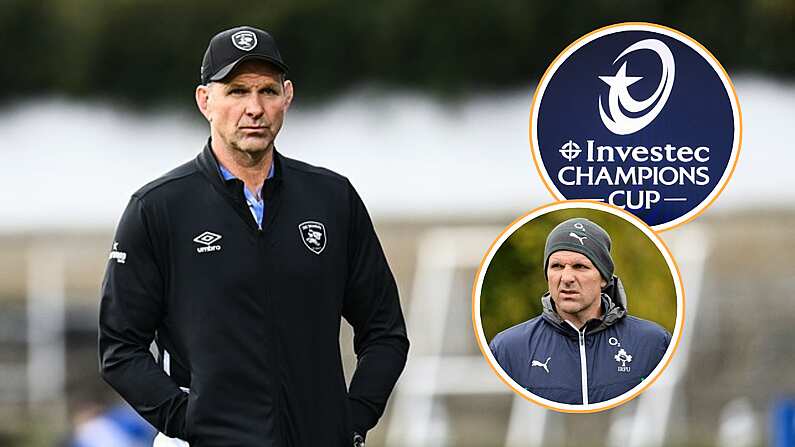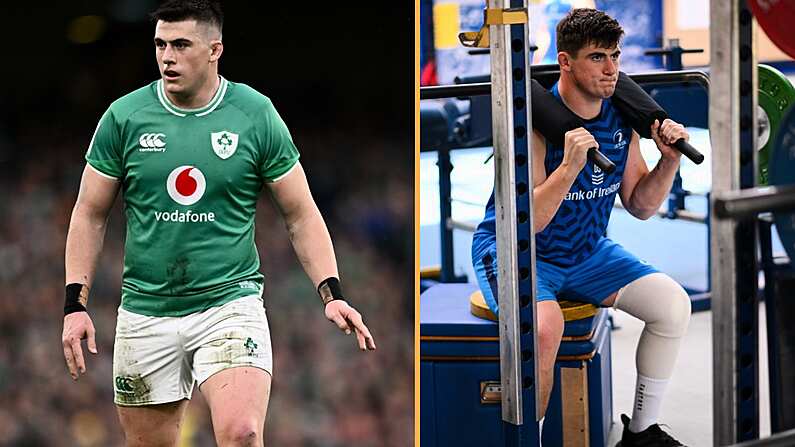Buzzword, buzzword, buzzword. A lot of the coverage surrounding Andy Farrell's surprise appointment as Ireland's defence coach has honed in on some of the Englishman's particularly memorable sayings while helping the Lions to a series victory in Australia back in 2013.
'Fucking destroy and enjoy,' was one. 'Let's take them to the hurt arena,' was another.
They both sound cool - and are the sort of things that fans love - but they are ultimately empty soundbites.
What is a better judge of Farrell is how England performed defensively under his guidance - and as you'll see below the numbers stack up quite well against his rivals.
It is hard to know how successful Farrell will be with the Irish team when he joins after the Six Nations, but the IRFU have already shown faith in him by giving him a contract until 2019 - two years longer than head coach Joe Schmidt's.
It is an extremely plum job for the rugby league legend to land considering he was fingered as the one of the key men behind England's World Cup capitulation. It is hard to know what is worse, being accused of nepotism or as the man who shoehorned Sam Burgess into the centre. Even so, lots of Irish players have talked about how excited they are at the appointment - including BOD and Paulie, which is no higher recommendation really.
O'Driscoll cited how Farrell's defences have ferocious speed off the line, which is certainly a plus but the numbers are also telling us that Farrell could be a more than adequate replacement for the departed Les Kiss.
Kiss helped revolutionise the Irish defence, implementing the choke tackle and turning his rearguard into one of the world's stingiest in the process.
It is interesting to compare how Farrell's England team defended during his tenure - 2012 Six nations to 2015 World Cup - versus how Ireland and Wales (the other top northern hemisphere teams) did during that time.
When you discount games against the Barbarians and the World Cup warm-up games (which you should given how teams experimented ahead of the tournament), you are left with an interesting picture.
England's defence under Andy Farrell: Played 43 games, allowed 68 tries - 1.58 try per game.
Ireland defence under Les Kiss: Played 41 games, allowed 62 tries - 1.51 per game.
Wales' defence under Shaun Edwards: Played 44 games, allowed 66 tries - 1.5 per game.
England had the worst defence over Farrell's time in charge but it is marginal - they only conceded 0.07 more tries per game than Ireland did. So Farrell performed roughly the same as Les Kiss did with Ireland with what everyone would agree was a similarly talented group of players.
Certainly not a bad argument for appointing the Englishman as the Australian's successor. Here is how three defences performed in the last four Six Nations':
England under Farrell in the Six Nations: Played 20 games, allowed 26 tries - 1.3 tries per game
Ireland under Kiss in the Six Nations: Played 20 games, allowed 20 tries - 1 per game
Wales under Edwards in the Six Nations: Played 20 games, allowed 20 tries - 1 per game
The main reason why Farrell's Six Nations numbers aren't closer in line with his rivals is that England conceded five tries against France in the 2015 decider when they needed to win by a large margin.
One thing worth taking into account when looking at the stats across the four years is that England played far more games against the southern hemisphere big three than Ireland did - 15 v 8 - and played twice as many away games against them too.
Interestingly, England defended very well against New Zealand, South Africa and Australia when compared with Ireland.
England's defence v the big 3 under Farrell: Played 15 games, allowed 36 tries - 2.4 tries per game.
Ireland's defence v the big 3 under Kiss: Played 8 games, allowed 28 tries - 3.5 tries per game.
Wales' defence v big 3 under Edwards: Played 13 games, allowed 32 tries - 2.46 tries per game.
So if the big issue coming out of the World Cup was that Ireland and the rest of the northern hemisphere are falling behind the southern hemisphere teams, it might not be the worst idea to bring in a man who helped design the defence that best dealt with those sides over the last four years.
The numbers look pretty good for Farrell and as Brian O'Driscoll has said, it is important for Joe Schmidt to have an assistant coach that isn't afraid to challenge him with ideas - although lets hope he keeps far-fetched schemes of league converts to himself.
Read: Brian O'Driscoll Further Explains Why Andy Farrell Is A Good Appointment
If there is one flaw in Farrell's aggressive defensive style it's that if there's a single broken link in the chain, it can be ruthlessly exploited. Wales took advantage at the last World Cup when the England centres shot up far quicker than Anthony Watson, who was caught between pushing up and defending against a cross-kick.
Farrell will get an excellent chance to see if his prowess in slowing down the southern hemisphere sides can be translated to another system. His first three games are away to South Africa before Ireland welcome New Zealand and Australia in the autumn. That will give an early indicator of whether the Englishman will be a success with his new team, but at least fans can look at the stats from the last four years and be confident that the IRFU haven't made a complete misstep.
P.S: Just for the laugh, here is France's defensive record under Philippe Saint Andre.
Played 42 games, allowed 82 tries - 1.95 tries per game!

